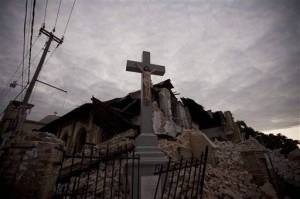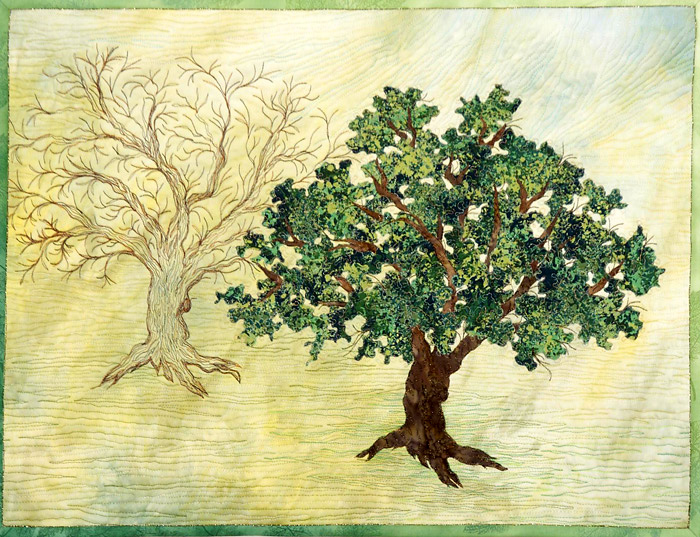 We are once again staring at total destruction and human suffering. The images make you stop and wonder why? We are overwhelmed, saddened, and lost. We feel powerless and wonder what we can do?
We are once again staring at total destruction and human suffering. The images make you stop and wonder why? We are overwhelmed, saddened, and lost. We feel powerless and wonder what we can do?
The “talking heads” have begun chanting their analysis and solutions. The world just watches as people like us face the terrorizing reality that has become their life. Those of us who claim to be bearers of good news have much to reflect upon and must be careful guardians of the gospel words. Making sure that these words are communicated in ways that are constructive, hope filled and life giving.
Much of the conversation in religious circles has turned to the nature of suffering. In a recent New York Times Op/Ed, Pooja Bhatia, asks “Why, then, turn to a God who seems to be absent at best and vindictive at worst?”
In one sentence Bhatia asks the question that many are asking. If God is the one responsible, as some so called Christian leaders have already suggested, then we are indeed in deep trouble. If God is absent, somehow oblivious to the situation at hand then we too have much damage control to do.
Jon Sobrino, Latin American theologian & priest, understands this dilemma in the Christian faith. Like many others before him he reminds us that God is present in suffering, he tells us that “God is the God of the victims.” He then focuses our attention on the biggest tragedy in such situations,
The greatest tragedy – in an earthquake or any other situation – is not the material damages it causes, but the destruction of what is human. The greatest solidarity is to help rebuild that humanity. The greatest hope is to keep walking, doing justice, and loving with kindness.
– Jon Sobrino in Where is God?: Earthquake, Terrorism, Barbarity, and Hope
The good news of Jesus, is not going to save us from the struggles and tragedies of life! We as people living in a troubled world will be victims of brokenness, strife, and injustice. Some, like the people of Haiti, have found themselves victimized time and time again by forces outside their control. This is not God’s doing instead it reflects the brokenness of all of life, the brokenness that God came to redeem.
The images return: the rubble of buildings, bodies scattered, loved ones carrying their dead, beloved children of God walking in the destruction: lost, hungry, nowhere to go . . . there is God! Grieving, holding, walking, broken . . . It is because of suffering, pain, and destruction that God came in Jesus.
The challenge is how we as God’s people will respond and how we will show solidarity with these sisters and brothers so far away? How are we going to make the good news of hope, restoration and humanity incarnate to the people that needed most? How are we going to make sure that what we build is not the infrastructure of empire but the infrastructure of communal life?
We will respond by being loving, generous, attentive. We will love those who are unlike us and yet struggle like we would. We will give generously of what we have, reflecting the way that God gives all of God-self for the life of the world. But we will also become more attentive – we will shine the light of oppression, injustice, and alienation – we will become bearers of what is human for those who have experienced its destruction.
Through our imperfect prayers, relief efforts, and dispersed presence we will become the incarnate presence of God to those who this day needed most. Through our offering we show the world that God is indeed present, caring, comforting, guiding and opening the way for new life!

 Today we celebrate the birth of the Rev. Dr. Martin Luther King Jr. It is appropriate that we lift up Dr. King’s life and work today, especially after the devastation suffered in Haiti. The relief work has begun, some are being rescued, many are dead. Help is outpouring from all corners of the world. The difficult task of relief will soon become the epic task of rebuilding. We must begin to ask ourselves what role are we going to play as the church and as American people in helping the nation of Haiti not just rebuild but re-imagine, not just buildings, but future.
Today we celebrate the birth of the Rev. Dr. Martin Luther King Jr. It is appropriate that we lift up Dr. King’s life and work today, especially after the devastation suffered in Haiti. The relief work has begun, some are being rescued, many are dead. Help is outpouring from all corners of the world. The difficult task of relief will soon become the epic task of rebuilding. We must begin to ask ourselves what role are we going to play as the church and as American people in helping the nation of Haiti not just rebuild but re-imagine, not just buildings, but future. Here it is again . . . it sneaks up on us year after year. After the fanfare and feasting of Mardi Gras comes a season of simplicity and reflection. A season that begins with a mark that makes visible the intention to begin anew.
Here it is again . . . it sneaks up on us year after year. After the fanfare and feasting of Mardi Gras comes a season of simplicity and reflection. A season that begins with a mark that makes visible the intention to begin anew. On a recent road trip I was scanning the radio stations when I landed on a local talk show. They were speaking about politics, specifically about the partisanship that seems to paralyze any movement towards progress. As a response to a caller’s insistence that what was needed was more transformative leadership the host responded saying “transformative leaders require transformative people.”
On a recent road trip I was scanning the radio stations when I landed on a local talk show. They were speaking about politics, specifically about the partisanship that seems to paralyze any movement towards progress. As a response to a caller’s insistence that what was needed was more transformative leadership the host responded saying “transformative leaders require transformative people.”

